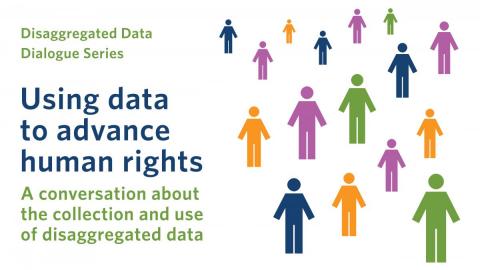Disaggregated Data Dialogue Series

Powerful statements are made possible by disaggregated data. By making systemic inequalities in our society visible, data can lead to positive change. The same data, used or collected poorly, can reinforce stigmatization of communities, leading to individual and community harm. – BC’s Office of the Human Rights Commissioner
UBC Health and its partners are committed to being part of ongoing conversations about the collection and use of disaggregated data.
In response to the BC’s Office of the Human Rights Commissioner report Disaggregated demographic data collection in British Columbia: The grandmother perspective, UBC Health is hosting a series of discussions about the responsibilities of researchers and UBC as an institution about the collection and use of disaggregated data. Disaggregated data can reveal inequalities and relationships, and the report calls for the collection of data when they are used to develop policies that address systemic inequalities and advance human rights. The report also includes recommendations to protect against discrimination and enable populations and communities to have meaningful control over data use.
The dialogue series reflects UBC Health’s commitment to being part of conversations related to disaggregated data. By convening researchers and other colleagues from the Vancouver and Okanagan campuses as well as community members, we are part of the process of understanding how to achieve transparency about the stigma, discrimination, and suffering of specific and identifiable groups. We will support the sharing of compelling messages of strength and resilience, enabling them to be amplified and heard clearly by those in power.
PART I
On January 14, 2021, we hosted a webinar to spark conversation between UBC and BC’s Office of the Human Rights Commissioner about the report and the collection of disaggregated data to advance human rights. More than 140 participants attended, including faculty, staff, and students from both the Vancouver and Okanagan campuses, as well as some community members. The webinar was the start of an ongoing conversation about how the report informs the responsibilities of researchers and UBC as an institution.
PART II
On February 24, 2021, we hosted a focused discussion about the responsibilities of researchers and UBC around the collection and use of disaggregated data. The objective of this session was to continue and focus the conversation started during the January webinar and to:
- Identify the types of focused discussions that will facilitate thinking around how the Commissioner’s report informs the responsibilities of researchers at UBC and UBC as an institution.
- Facilitate a conversation between UBC and community, reflecting what individual researchers can do, and how to integrate community voice.
- Make explicit commitments for further discussions and actions.
More than 50 researchers and other colleagues from both campuses as well as community members generously shared their ideas about what conversations we, as UBC and with community, need to be having around the issue of disaggregated data. Participants also identified groups that should be part of future discussions.
Read the Disaggregated Data Dialogue Series Report for a summary of the discussions.
Part iii
UBC Health worked with participants interested in shaping future sessions to plan conversations formed around the themes identified during the February dialogue session. We continue to bring together colleagues and community to share their diverse perspectives about the responsibilities of researchers and UBC as an institution about the collection and use of disaggregated data.